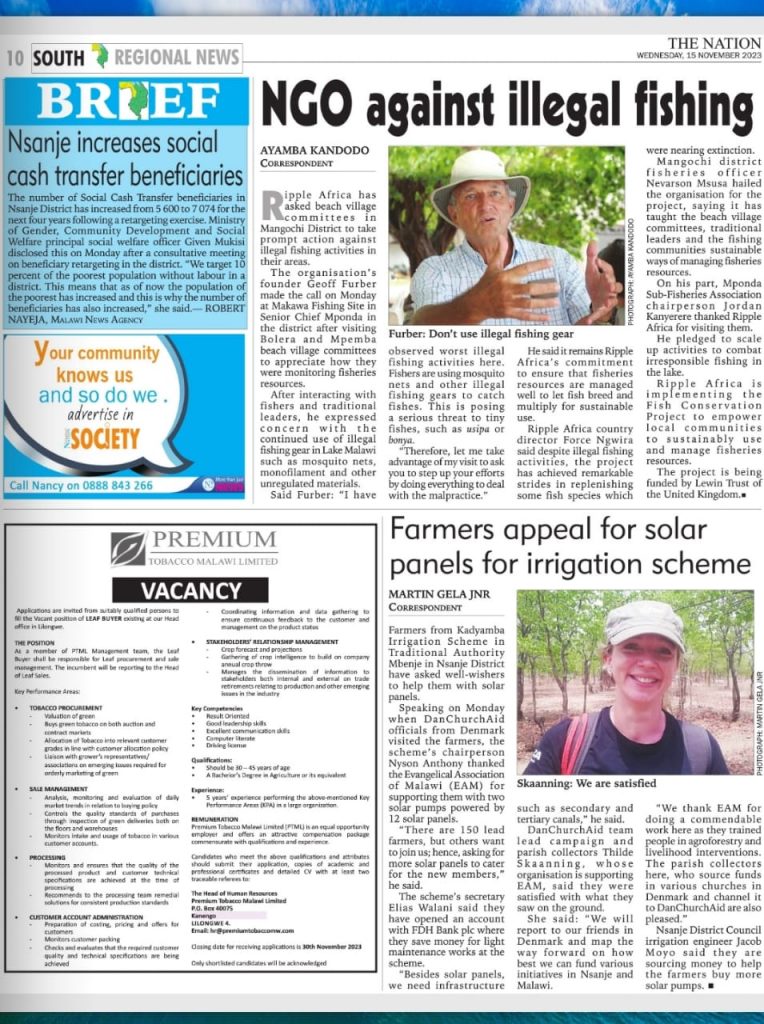Disclaimer – Below is a follow-up to the recent article Fish Netting in Namibia, to read this article please click here.
Please note that whilst Bambazonke aims to be a community-based platform where we discuss ideas and experiences, we remain
impartial to all views shared below.
Ripple Africa, making a difference.
I’m delighted to introduce you to Ripple Africa, a UK-based charity organization that has made significant strides in environmental
conservation, education, and healthcare in African nations, with a particular emphasis on Malawi. Their online platform,
rippleafrica.org, serves as a comprehensive resource for learning about their various projects and initiatives. It also provides detailed
information on how you can get involved and support their noble cause. By visiting their website, you can gain a deeper
understanding of their work and find opportunities to contribute to their mission. Let’s join hands with Ripple Africa in making a
positive impact on our world. Click here
Recycling Fishing Nets.
The BBC has published an intriguing video report titled “Fishing nets being recycled to help save the sea”. This report addresses a
long-standing issue: what to do with old fishing nets. In the past, these nets were often dumped at sea or discarded in landfills.
However, thanks to a scheme organized by Keep Britain Tidy, these old trawling nets are now being recycled in the UK for the first
time. This innovative approach not only solves a waste problem but also contributes to marine conservation. Check out the full report
on the BBC’s website to learn more about this inspiring initiative. Click here

Not just nets, what about the fishing lines too?
The article on Begin To Fish titled “How Are Monofilament Fishing Lines Recycled?” provides a comprehensive guide on the recycling
process of monofilament fishing lines. It highlights the importance of proper disposal and recycling of these lines to prevent
environmental impacts. The article explains that monofilament lines are shredded into small pieces and melted down into reusable
plastic pellets. It also provides information on where to recycle old fishing lines, including local tackle shops and designated drop-off
points. This article is a must-read for anyone interested in sustainable fishing practices and environmental conservation. Click here

